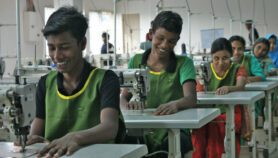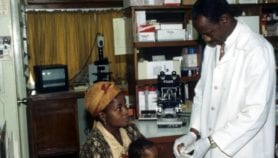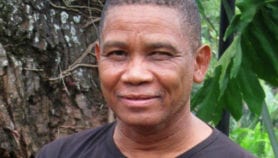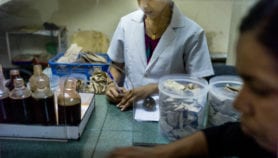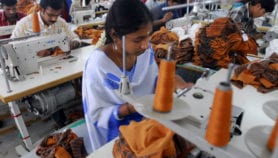By: Marina Lemle
Send to a friend
The details you provide on this page will not be used to send unsolicited email, and will not be sold to a 3rd party. See privacy policy.
[RIO DE JANEIRO] A row has broken out between Brazil’s most senior law official and its health minister about the legality of using human embryos for stem cell research.
According to the attorney general, Claudio Fonteles, using human embryos is “unconstitutional” because it infringes the right to life, and so should be banned.
On 30 May, Fonteles appealed to the Supreme Court to repeal article five of the ‘biosecurity law’, which allows scientists to use human embryonic stem cells for research and to treat diseases. The law was approved in March (see Brazil says ‘yes’ to GM crops and stem cell research).
Health minister Humberto Costa called Fonteles’s move a “backward step” that would deprive Brazilian researchers of the opportunity to seek cures for a wide range of diseases.
The dispute hinges on different definitions of when a human life begins.
The World Health Organization says life does not begin until the embryo produced by the fertilisation of an egg by a sperm attaches itself to the mother’s womb. Fonteles, however, argues that life begins at fertilisation.
Allowing researchers to extract stem cells from fertilised eggs, a process that leads to their destruction, infringes upon the right to life and therefore breaches Brazil’s constitution, he says.
Fonteles argues that instead of obtaining stem cells from fertilised eggs, Brazilian researchers should get them from umbilical cords or adults. However, stem cells obtained from fertilised eggs are believed to have more potential than those taken from adults or umbilical cords.
Yesterday (14 June), the health ministry sent a report to Brazil’s General Law Office outlining it’s technical arguments in response to Fonteles’s position.
It says article five cannot be unconstitutional because the constitution only addresses rights of people who have been born, and that Brazil’s civil and criminal laws refer only to embryos fixed in the womb.
Fonteles’s appeal to the Supreme Court includes supporting statements made in the past by nine scientists, who all agree that life begins after fertilisation.
For instance, Claudia Batista, a researcher at the Rio de Janeiro Federal University with experience in stem cell research, says, “After fertilisation, there is a human being in full development, and not just a cell complex with merely cell life.”
“Life begins at fertilisation. Any artificial method to destroy it is murder,” said late Jérôme Lejeune, who in 1959 discovered the genetic basis for Down’s syndrome and was an internationally renowned advocate of unborn children’s rights.
Gynaecologist Denirval da Silva Brandão says that after fertilisation there is a new independent human being, with its own genetic makeup and immune system. “This is not a metaphysical hypothesis, it is an experimental finding.”
But health minister Humberto Costa calls Fonteles’s appeal “a backward step”, adding that “stem cell research is a huge door that is being opened for the future of our country in the treatment of many diseases”.
Whether or not Fonteles’s appeal is granted, the world’s biggest clinical study of a stem cell therapy for heart disease will not be jeopardised, as it uses adult, not embryonic, stem cells. The trial, involving 33 institutions and 1,200 patients in nine Brazilian states, was launched last week.
Antônio Carlos Campos de Carvalho, chief of research at the National Cardiology Institute, says that if the trial is successful, it could save 200,000 lives in three years and some 37 million reais (US$15.4 million) every month.
Brazil’s health and science ministries plan to invest US$4.4 million on research using adult and embryonic stem cells (see Stem cell research fund launched in Brazil). The funds will support basic laboratory research, pre-clinical studies using animals and clinical trials on people.
To support the government, Brazil’s National Academy of Medicine will next month publish a document outlining ten key ethical recommendations and best practices.
Click here to read Fonteles’s full appeal to the Supreme Court (in Portuguese)



